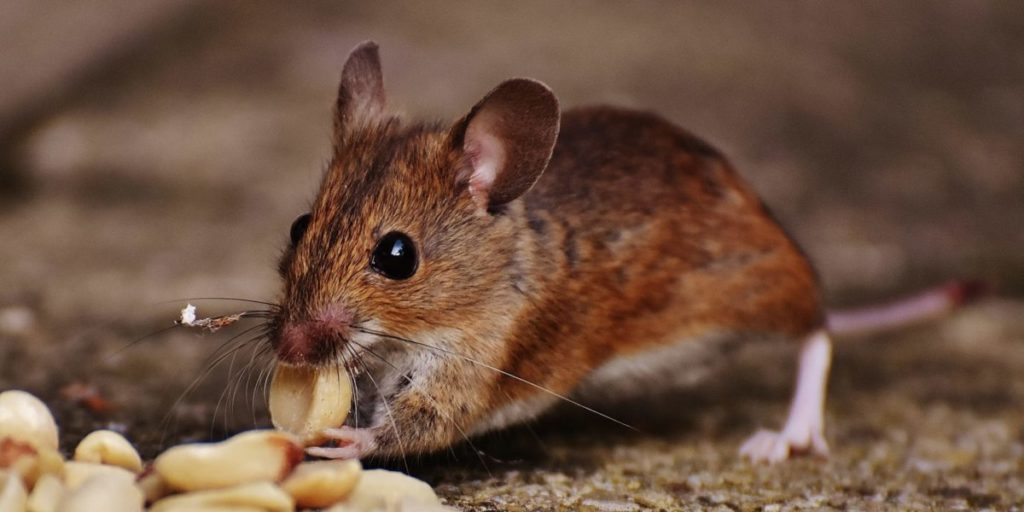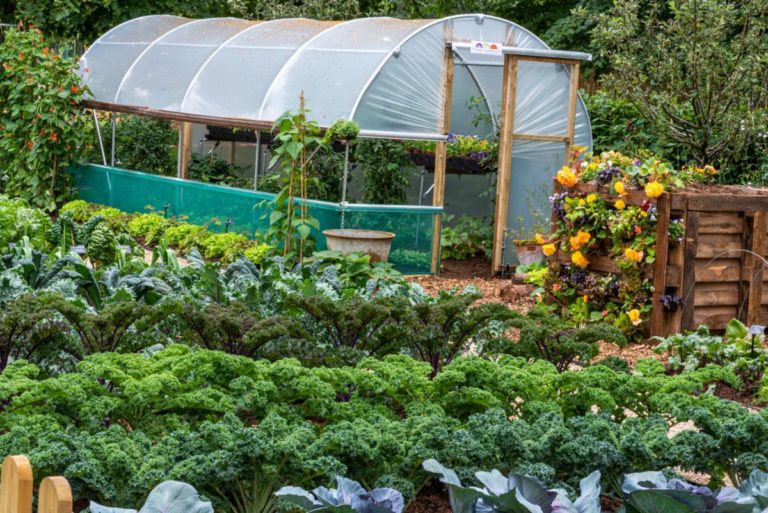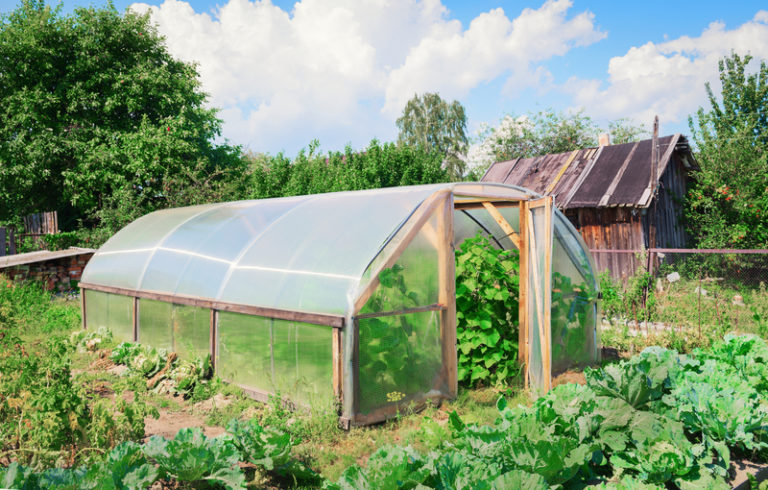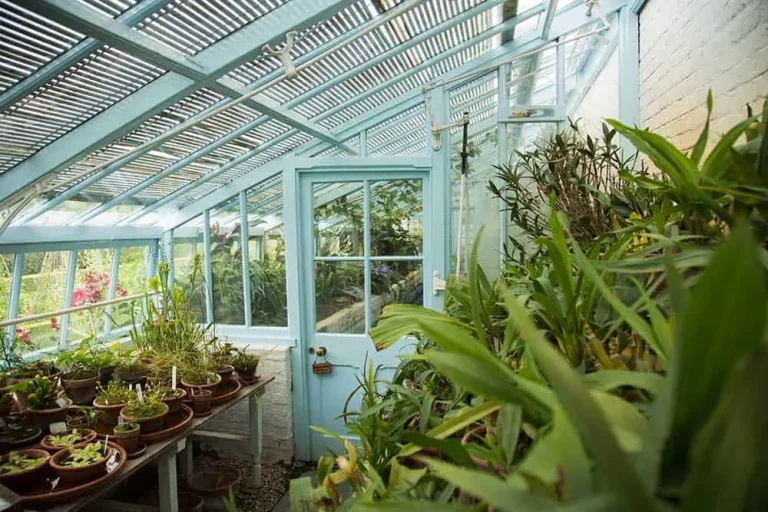For off-grid gardeners, maintaining a healthy and thriving garden without the use of harmful chemicals can be a challenge.
But with natural pest control techniques, it’s possible to keep your garden in top shape while protecting the environment.
By adopting these eco-friendly methods, you’ll not only ensure a bountiful harvest but also create a more sustainable and resilient garden that supports beneficial insects and wildlife.
Encourage beneficial insects
Attract beneficial insects like ladybugs, lacewings, and hoverflies to your garden by planting flowers that attract them, such as marigolds, dill, and cosmos. These beneficial insects will help control pests naturally.
Ladybugs, lacewings, and hoverflies are just a few examples of the many beneficial insects that can be encouraged to visit your garden by planting specific flowers.
Marigolds, dill, and cosmos are all excellent choices that will not only attract these beneficial insects but also provide a beautiful display of color and fragrance.
Once these beneficial insects are present in your garden, they will help control pests naturally by preying on their eggs, larvae, and adult stages.
This will reduce the need for chemical pesticides and help maintain a healthy balance in your garden ecosystem.
Beneficial insects like ladybugs and lacewings are also effective pollinators, helping to ensure a bountiful harvest of fruits and vegetables.
By incorporating these simple yet effective strategies into your gardening routine, you can create a thriving and sustainable ecosystem that will flourish for years to come.
Use neem oil
Neem oil is a natural pesticide that can be used to control a wide range of pests, including caterpillars, whiteflies, and spider mites. Mix neem oil with water and spray it on your plants to repel pests.
Using neem oil as a natural pesticide is a highly effective and sustainable way to control a wide range of pests, including caterpillars, whiteflies, and spider mites.
Neem oil is extracted from the seeds of the neem tree, a native Indian plant that has been used for centuries in traditional medicine and pest control.
When mixed with water and sprayed on your plants, neem oil creates a repellent barrier that deters pests from feeding on your crops.
The active compounds in neem oil, such as azadirachtin, disrupt the hormone system of pests, preventing them from growing and reproducing.
This means that you can enjoy a bountiful harvest without the use of harmful chemicals.
Moreover, neem oil is non-toxic to humans and beneficial insects, making it a safe and eco-friendly option for organic gardening.
To use neem oil as a pesticide, simply mix 2 tablespoons of neem oil with 1 quart of water and spray the solution on your plants, ensuring thorough coverage of the foliage and soil.
Repeat the application every 7 to 10 days, or as needed, to maintain pest control and promote healthy plant growth.
With its proven efficacy and eco-friendly nature, neem oil is an excellent addition to your integrated pest management arsenal.
Spray soapy water
A mild dish soap can be used to control pests like aphids, mealybugs, and spider mites. Mix one tablespoon of mild dish soap with one quart of water and spray it on your plants to repel pests.
For effective pest control, consider spraying soapy water on your plants.
A mild dish soap can help repel pests like aphids, mealybugs, and spider mites.
To prepare the solution, mix one tablespoon of mild dish soap with one quart of water.
This solution can be sprayed on your plants to create a barrier that pests won’t be able to cross.
The soap will suffocate the pests, preventing them from breathing and eventually killing them.
This method is a safe and non-toxic way to control pests, making it an excellent option for gardeners who prioritize the health and well-being of their plants and the environment.
By spraying soapy water on your plants, you can keep pests under control without using harsh chemicals or harming the ecosystem.
Use diatomaceous earth
Diatomaceous earth is a fine powder made from the fossilized remains of tiny aquatic organisms. It works by dehydrating pests like slugs, snails, and caterpillars, causing them to die. Sprinkle diatomaceous earth around the base of your plants to prevent pests from reaching them.
Diatomaceous earth (DE) is an effective, non-toxic solution for pest control.
This finely powdered substance is made from the fossilized remains of tiny aquatic organisms and works by dehydrating pests like slugs, snails, and caterpillars, causing them to die.
When sprinkled around the base of your plants, DE forms an impermeable barrier that prevents pests from reaching your precious foliage.
To use DE, simply sprinkle a thin layer around the base of your plants, making sure to cover all areas where pests are known to enter.
The powder can also be mixed with water to create a spray that can be applied directly to affected areas.
When applied correctly, DE can provide long-lasting protection against a wide range of pests, making it an excellent addition to your gardening arsenal.
DE is safe for humans, pets, and beneficial insects, making it a great alternative to harsh chemicals.
Install physical barriers
Physical barriers like fine-mesh netting or fine-mesh row covers can prevent pests like butterflies and bees from reaching your plants. These barriers can be removed when the pest season is over.
Installing physical barriers like fine-mesh netting or fine-mesh row covers can be an effective way to prevent pests like butterflies and bees from reaching your plants.
These barriers act as a physical barricade, preventing pests from accessing your plants and causing damage.
Fine-mesh netting and row covers are specifically designed to allow air and water to reach your plants while keeping pests out.
They can be installed over individual plants or entire beds, and can be removed when the pest season is over.
This is a particularly useful solution for gardeners who have a small number of plants they want to protect, or for those who only need to protect their plants for a short period of time.
Physical barriers can be easily removed and reused from year to year, making them a cost-effective and sustainable solution for pest control.
Companion planting
Certain plants, like basil, mint, and chives, can repel pests when planted alongside your crops. Companion planting is a technique where you plant different plants together to improve their growth and reduce pests.
Companion planting is a powerful technique for improving crop health and reducing pests, and basil, mint, and chives are just a few of the many plants that can be used for this purpose.
By planting these pest-repelling plants alongside your crops, you can create a healthier and more resilient garden ecosystem.
For example, basil is known to repel aphids and other pests, while mint can help to keep away harmful insects and diseases.
Chives, on the other hand, can help to improve the health of your soil by attracting beneficial insects and improving soil structure.
By incorporating these and other pest-repelling plants into your garden, you can reduce the need for chemical pesticides and create a more sustainable and thriving garden.
Traps
Use sticky traps or bait traps to control pests like whiteflies, aphids, and spider mites. Place traps near infested areas to capture pests before they can harm your plants.
When it comes to controlling pests like whiteflies, aphids, and spider mites, sticky traps and bait traps are two effective and easy-to-use methods.
These traps work by capturing the pests before they can cause any harm to your plants.
To use sticky traps, simply place them near infested areas, such as the underside of leaves or on branches.
The sticky surface will trap the pests, preventing them from escaping and allowing you to easily dispose of them.
For bait traps, place the traps near the infested areas and use a specialized bait to attract the pests.
Once the pests are trapped, you can dispose of them and prevent them from spreading to other plants.
Regardless of which type of trap you choose, be sure to place them in areas where they can capture the pests before they have a chance to spread to other parts of your garden.
By using traps, you can effectively control pest populations and keep your plants healthy and thriving.
Biological controls
Introduce beneficial insects like ladybugs, lacewings, and praying mantises to control pests. These beneficial insects feed on pests, reducing their populations and minimizing damage to your off-grid garden.
Introducing beneficial insects like ladybugs, lacewings, and praying mantises can be a highly effective and sustainable way to control pests in your off-grid garden.
These beneficial insects are natural predators of pests like aphids, whiteflies, and spider mites, and can be introduced to your garden using a variety of methods, such as releases from suppliers or by attracting them with suitable habitats and food sources.
When introduced, these beneficial insects will feed on pests, reducing their populations and minimizing damage to your garden.
For example, ladybugs are known to feed on aphids and other soft-bodied insects, while lacewings and praying mantises feed on a variety of pests, including caterpillars, beetles, and mites.
By introducing beneficial insects to your garden, you can create a balanced ecosystem that is self-sustaining and requires minimal input from you.
This approach is not only effective, but also aligns with the principles of sustainable and regenerative gardening practices, making it an excellent choice for off-grid gardeners.
Want More? Dive Deeper Here!
Hey there! If you’re the type who loves going down the rabbit hole of information (like we do), you’re in the right spot. We’ve pulled together some cool reads and resources that dive a bit deeper into the stuff we chat about on our site. Whether you’re just killing time or super into the topic, these picks might just be what you’re looking for. Happy reading!
- pivotid.uvu.edu – Square Foot Gardening How To Grow Healthy Organic Vegetables The Easy Way Including Companion Planting Intensive Vegetable Growing Methods Gardening Techniques 6
- IPM in the Greenhouse Series: Integrated Pest Management in Commercial Greenhouses: An Overview of Principles and Practices | Oklahoma State University
- Bulletin #2761, Container Gardening Series: Gardening in Small Spaces – Cooperative Extension Publications – University of Maine Cooperative Extension






